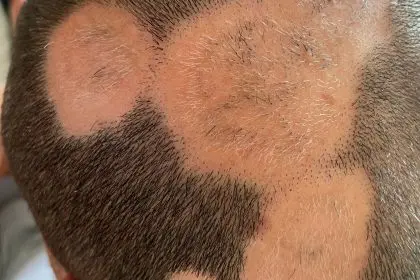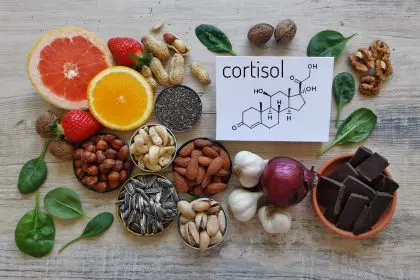Premature graying of hair is a prevalent concern in hair care, affecting countless individuals globally. While primarily influenced by genetic predispositions, this natural occurrence can also find its roots in many external factors. As strands lose their pigmentation prematurely, understanding its causative elements and implementing effective preventive measures becomes crucial in preserving the vibrancy and youthfulness of one’s locks for an extended duration.
The gradual reduction in melanin production within hair follicles is the fundamental reason behind premature graying. Melanin, the pigment dictating hair coloration, diminishes over time, resulting in the loss of natural hues, transitioning into shades of grey or white. Despite genetic inclinations being a dominant factor, a closer examination of contributing elements and adopting proactive measures can significantly impact the pace and onset of premature graying. Delving into these intricacies unveils a tapestry of insights and strategies aimed at nurturing healthy, colorful locks despite the natural progression of time.
Understanding Premature Graying
Before delving into preventive measures, it’s essential to comprehend why premature graying occurs. The primary reason is the gradual reduction in melanin production in hair follicles. Melanin, the pigment responsible for hair color, diminishes over time, causing strands to lose their natural color and turn gray or white.
Causes of Premature Graying
Several factors contribute to premature graying:
1. Genetics: Family history significantly determines when your hair might start turning gray.
2. Nutritional Deficiencies: Inadequate intake of essential vitamins like B, iron, copper, and zinc can accelerate graying.
3. Stress: Chronic stress can trigger hormonal imbalances, impacting melanin production and premature graying.
4. Smoking: Studies suggest that smoking can expedite the greying process due to the harmful effects of cigarette smoke on hair follicles.
5. Medical Conditions: Certain health conditions, such as thyroid disorders or vitiligo, can contribute to premature graying.
Effective Preventive Measures
While genetic predisposition may be beyond control, several preventive measures can help slow down premature greying and maintain healthier hair:
1. Balanced Diet: Incorporating foods rich in antioxidants, vitamins (especially B vitamins), minerals, and protein can nourish hair follicles and potentially slow down greying.
2. Stress Management: Stress-reduction techniques like yoga, meditation, or regular exercise can help maintain hormonal balance and support healthy hair.
3. Avoiding Smoking: Quitting smoking or avoiding exposure to secondhand smoke can benefit overall hair health and potentially slow down premature graying.
4. Hair Care Routine: Using gentle hair care products and avoiding excessive heat styling or harsh chemicals can prevent damage to hair follicles.
5. Supplements: In consultation with a health care professional, supplements containing essential nutrients like B vitamins, iron, and zinc can support hair health.
Natural Remedies
Several natural remedies are believed to support hair health and potentially delay greying:
1. Amla (Indian Gooseberry): Rich in antioxidants and vitamin C, amla is known for its potential to promote hair health and delay greying.
2. Curry Leaves: These leaves are rich in vitamins and minerals that may aid in restoring pigment to hair follicles.
3. Coconut Oil and Curry Leaves Paste: Mixing curry leaves with coconut oil and applying it to the scalp is a traditional remedy to prevent premature graying.
While premature graying is often a natural part of aging, understanding its causes and taking proactive steps can significantly delay its onset. Embracing a holistic approach that includes a balanced diet, stress management, proper hair care, and potentially natural remedies can contribute to maintaining youthful, vibrant hair for extended periods. Consulting with a healthcare professional or a trichologist can offer personalized guidance and recommendations tailored to individual needs. With these measures, one can embrace the journey toward healthier, more youthful-looking hair.
By prioritizing these preventive measures and making informed lifestyle choices, individuals can slow the onset of premature graying and maintain their hair’s natural beauty for longer.
This story was created using AI technology.













